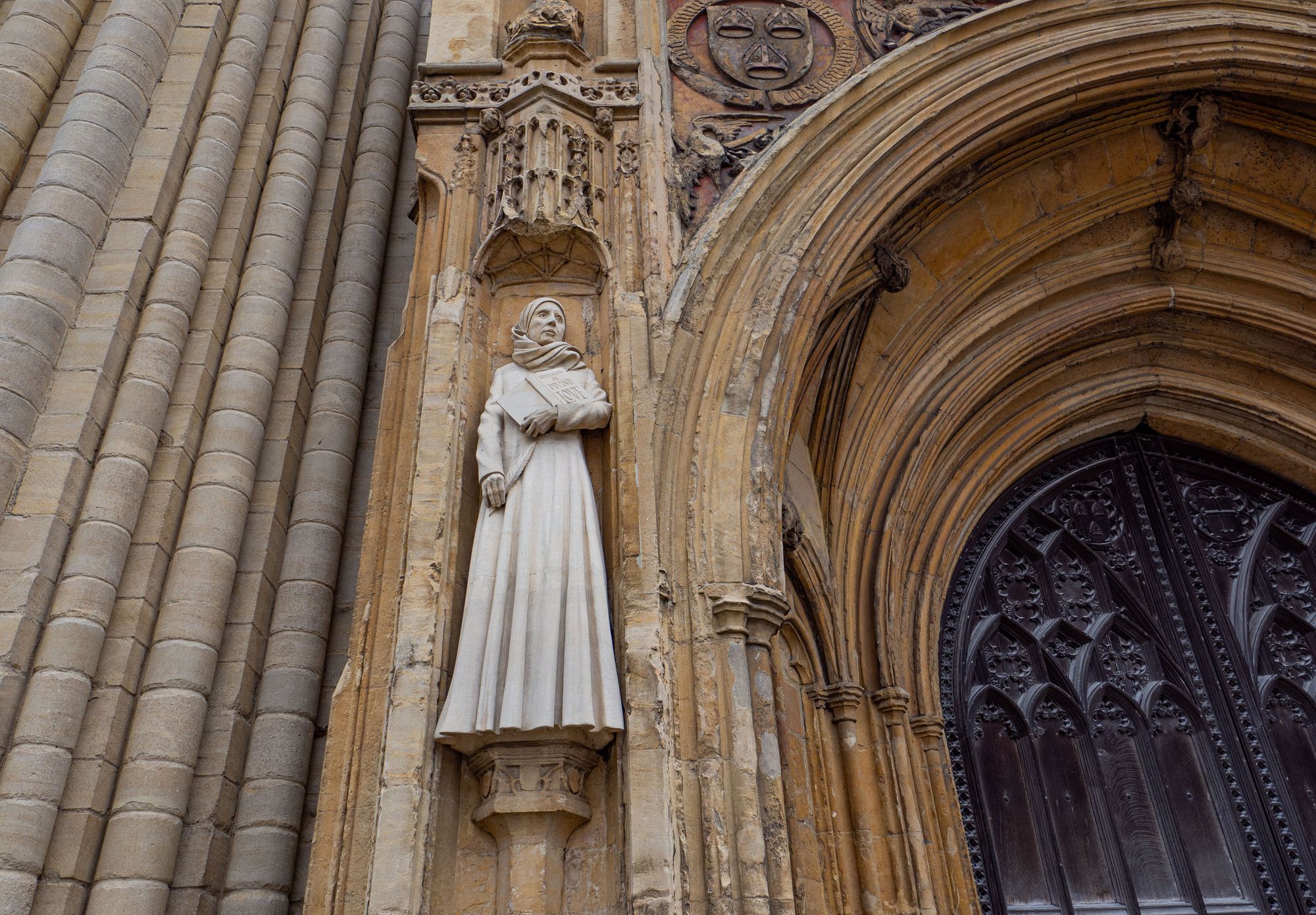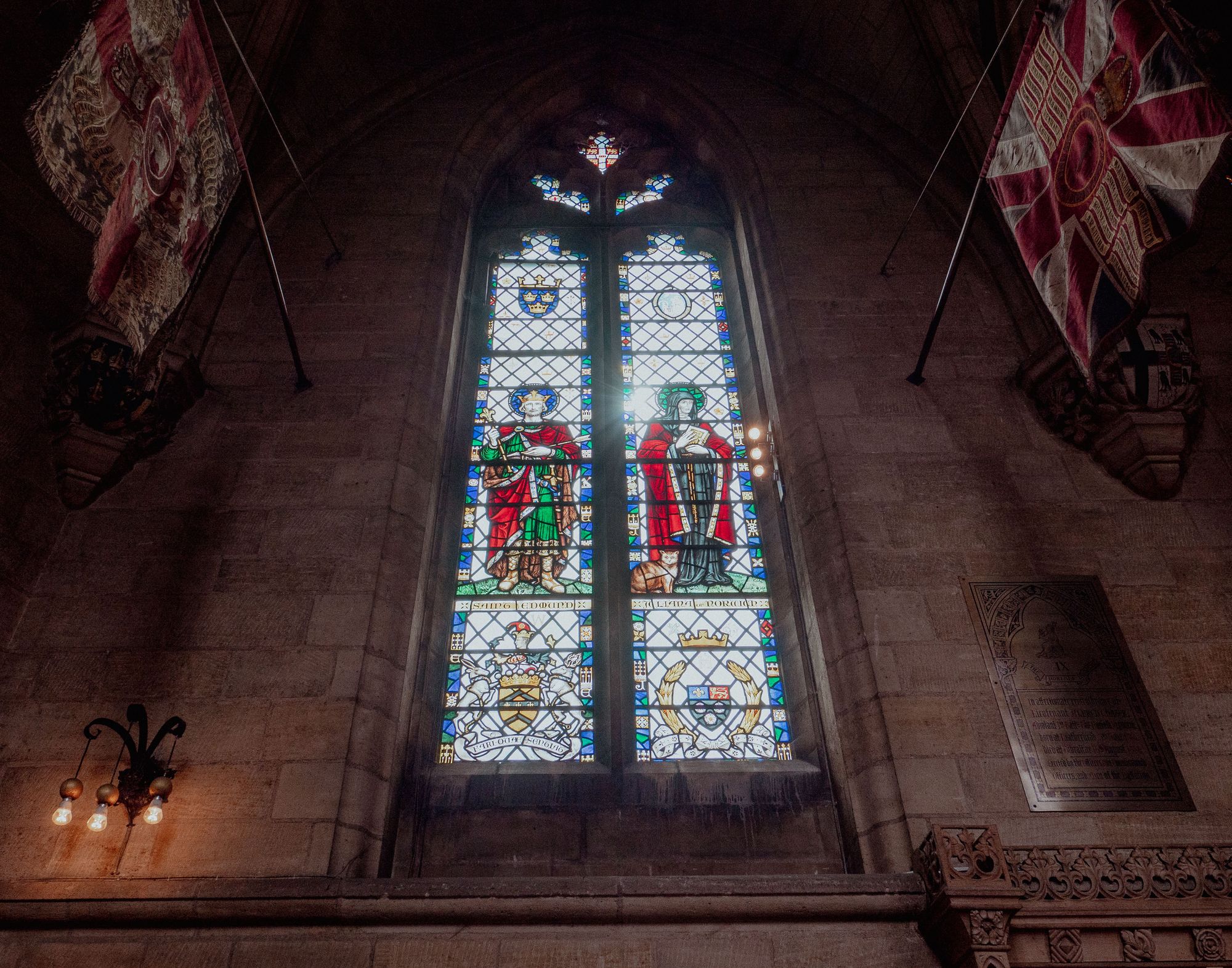Welcome to Afterglow, a newsletter that will change your mind. My name is Charles Bliss and I'm a psychedelic journalist from Norwich, UK.
This week we will be learning some "lovely lessons about love" from Julian of Norwich, a 14th century Christian mystic and author of the earliest surviving English language works by a woman. Say your prayers.

On 8 May 1373, Julian of Norwich was at death's door. Just 30 years old, she received the last rites from a local priest, who raised a crucifix high above her febrile body. On the third Sunday after Easter, as she struggled to survive, she experienced 16 "shewings" — mystical revelations of the Passion of Christ.
The mystical experience is an altered state of consciousness that consists of an intimate union with God, nature or the universe. It is characterised by a sense of pure awareness or merging with an ultimate reality. All things are revealed to be alive, sacred and interconnected. The mystic feels tremendous joy and peace but also terror as time and space is transcended. The experience is impossible to describe with words, yet there is a conviction that what is revealed is more real than reality itself.
A 2006 clinical study from Johns Hopkins University found that psilocybin — the active compound in magic mushrooms — "occasioned experiences which had marked similarities to classic mystical experiences and which were rated by volunteers as having substantial personal meaning and spiritual significance".
Of the total group of 36 volunteers, 26 had a "complete" mystical experience on psilocybin. They compared the meaningfulness of the experience to the birth of a first child or the death of a parent.
"It is remarkable that 67% of the volunteers rated the experience with psilocybin to be either the single most meaningful experience of his or her life or among the top five most meaningful experiences of his or her life."
The landmark study kickstarted the psychedelic renaissance and breathed new life and scientific credibility into the theory that there is a relationship between psychedelics and religious experience.

Julian recovered from her illness and committed to a life of solitude, sacrifice and contemplative prayer as an anchorite. She received a living funeral before stepping into a cell sprinkled with holy water. The doors were blocked behind her. She was now considered dead onto the world and alive only onto God. (The word anchorite comes from the Greek anachorea, which means 'I withdraw'.)
The "recluse atte Norwyche" served as a kind of spiritual director for the city. It was thought that by having someone so deeply connected with God living locally, it would benefit the soul of the community. As she lived through the Black Plague and then in isolation, Julian became something of a talisman during the Covid-19 pandemic and served as a source of inspiration for many throughout lockdown.
Julian spent decades in solitary confinement writing her account of 8 May 1373, which was eventually published as Revelations of Divine Love. She arrives at the conclusion that, despite all our sin and suffering, ultimately there is nothing to worry about — because we are one with an omnibenevolent God of unlimited goodness and kindness:
"Learn it well: Love was His meaning."

The defining message of Julian's text bears a striking resemblance to accounts from those who have undergone psychedelic-assisted therapy.
In How to Change Your Mind, Michael Pollan interviewed a volunteer named Richard Boothby from the Johns Hopkins study who said of the truths revealed to him during his psilocybin experiences:
"I have at times been almost embarrassed by them, as if they give voice to a cosmic vision of the triumph of love that one associates derisively with the platitudes of Hallmark cards. All the same, the basic insights afforded to me during the session still seem for the most part compelling."
What was his compelling insight?
"Love conquers all."
There are many more reports in Pollan's book and beyond of psychonauts having this exact same epiphany. In fact, this concept seems to be archetypal of the psychedelic mystical experience, which can be reliably administered with a heroic dose of LSD or psilocybin.
But what do we do with this revelation? How can this idea be applied in real and meaningful ways? Further scientific study is needed to confirm this, but one area of promise involves alleviating end of life anxiety in the terminally ill.
We'll pick up this thread in next week's newsletter, when discussing how The Beatles arrived at a similar idea after being spiked with LSD.
Until then,
Charles Bliss
🤯 Mind at Large
A breakdown of mind-blowing ideas I encountered this week:
🎬 Video – Medicalising Mysticism: Religion in Contemporary Psychedelic Trials. This panel discussion from Harvard Divinity School features participants from the Johns Hopkins University psilocybin trials discussing what happens when religion, mysticism and spirituality are explored within psychedelic clinical contexts.
"All shall be well, and all shall be well, and all manner of things shall be well."
Julian of Norwich
🫠 Enjoying this newsletter?
Forward to a friend and let them know where they can subscribe.
